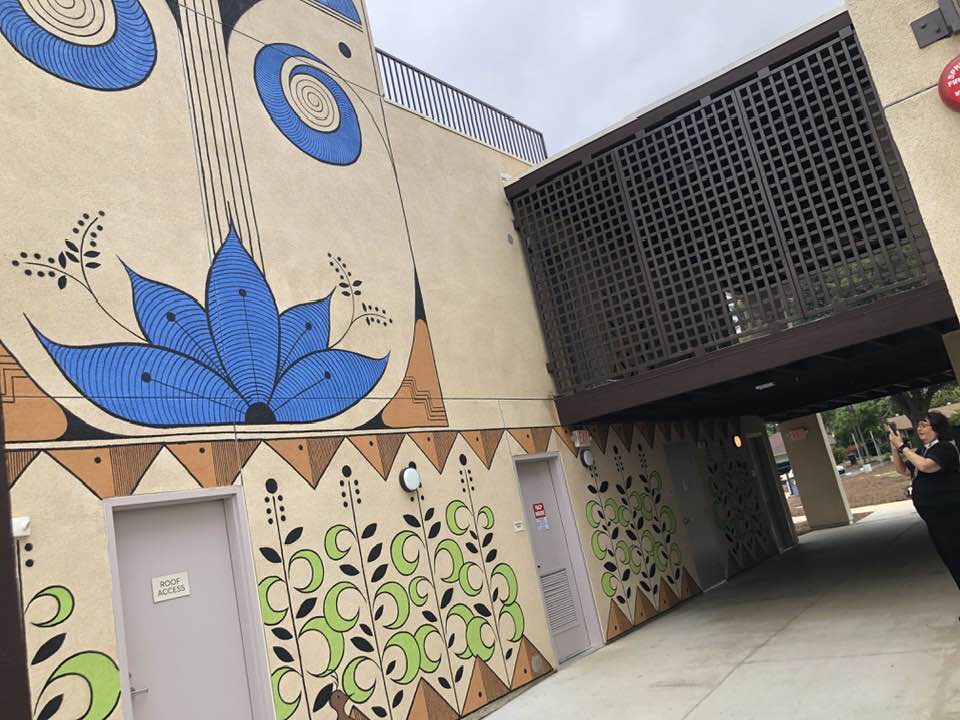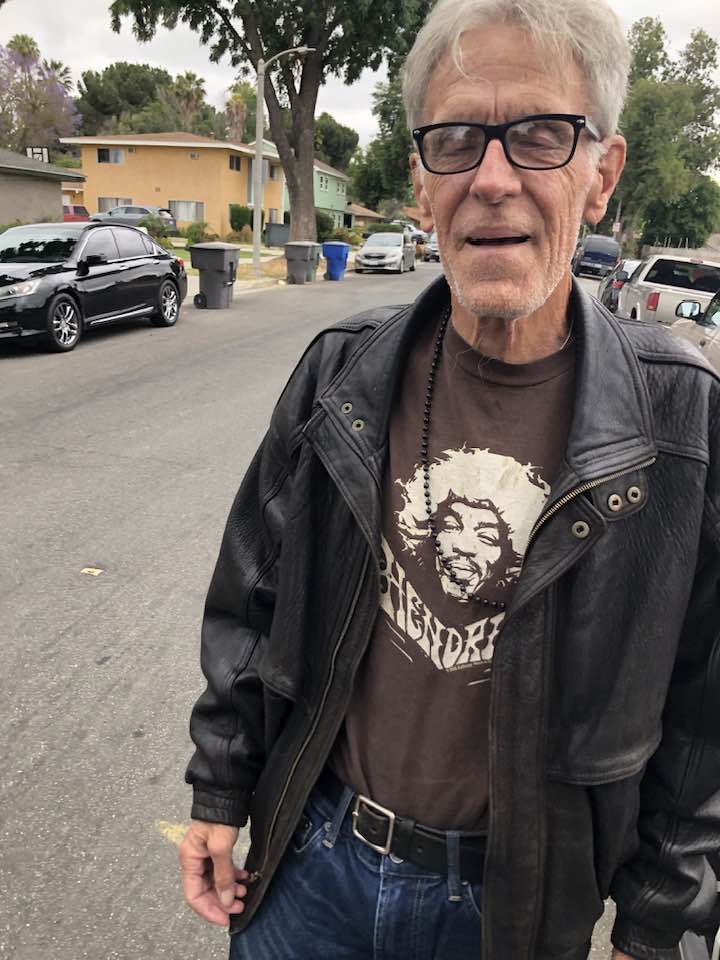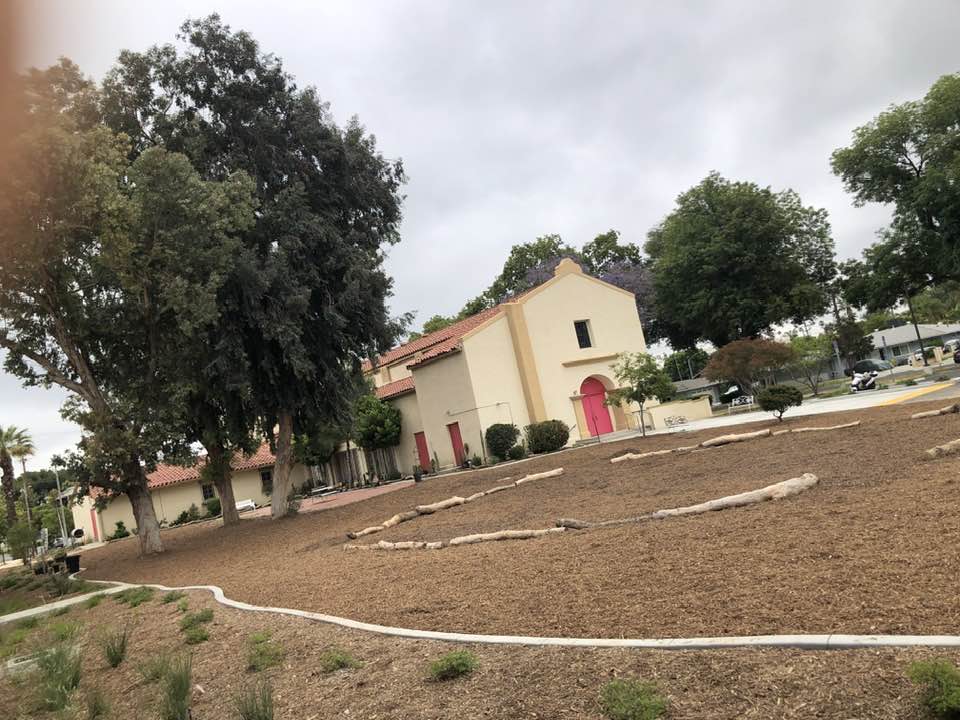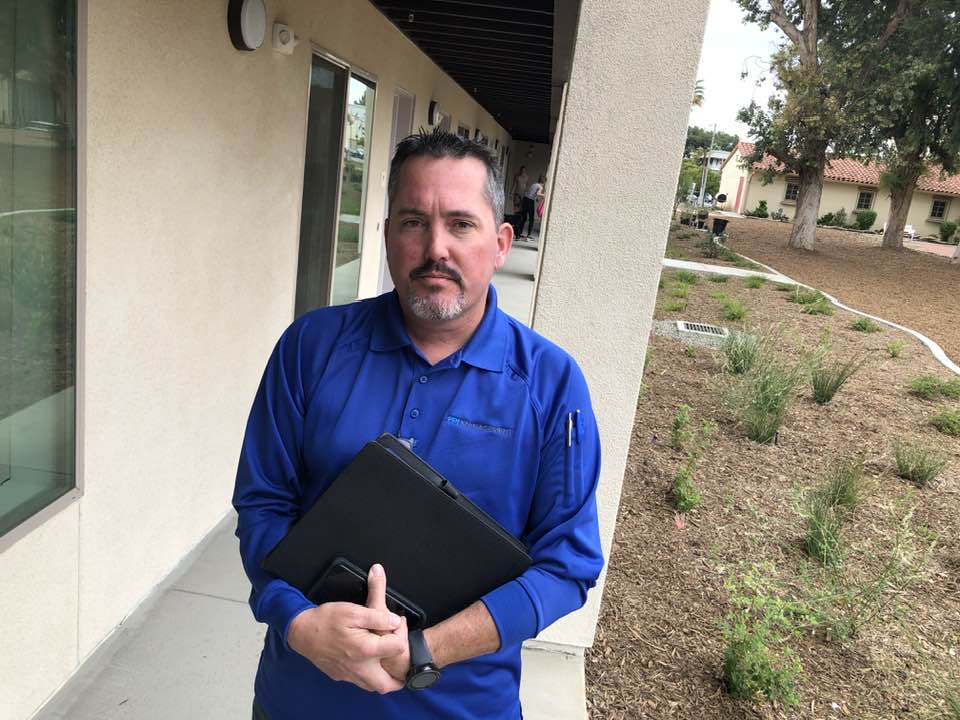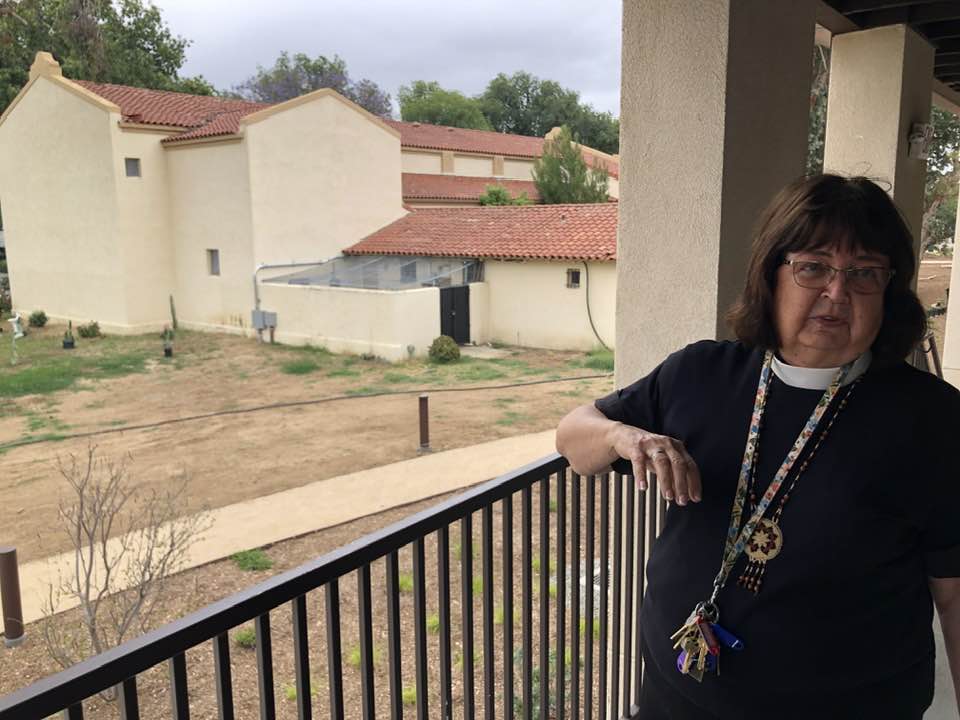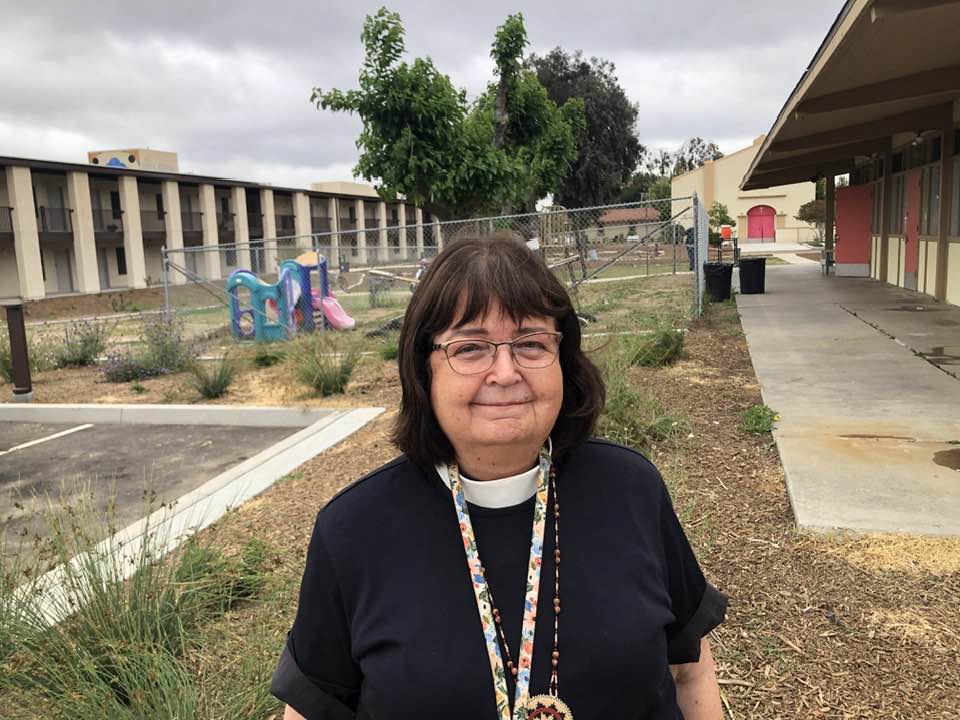
Shortly after the Rev. Canon Mary Crist began her volunteer ministry to the food- and housing-insecure at St. Michael’s Riverside Episcopal Ministry Center at Bishop Bruno’s invitation 12 years ago, she asked one of the men who wandered over from a nearby park what he and his friends needed most. “He said a place to have a cup of coffee together without being run off,” Mary told me today.
That’s what St. Michael’s has been ever since, a place of welcome for welcome’s sake, founded on Mary’s understanding — from indigenous spirituality with a dash of liberation theology, she says — that everyone’s family. We’re all related and therefore mutually responsible.
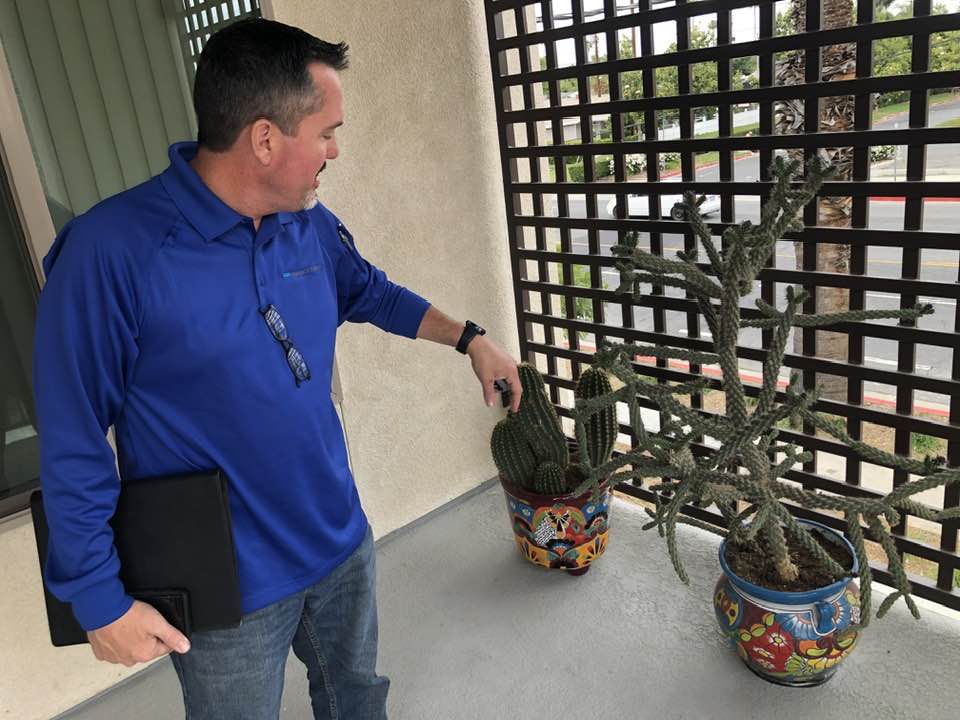 The St. Michael’s family just got a lot bigger with the opening of the St. Michael’s Apartments, 50 units of permanent supportive housing next door to the church and parish hall. Every apartment but one is now rented. I visited today to catch up with Mary, meet Tony, the live-in property manager (who smiled and called it a “48/7 job”), and participate in a round of blessing and prayer with some of Mary’s teammates, Gloria (who’s been cooking for folks since the beginning), Teddy, Ignacio, and John (recently confirmed at St. John’s Cathedral, though deprived until this morning of an episcopal blessing all his own).
The St. Michael’s family just got a lot bigger with the opening of the St. Michael’s Apartments, 50 units of permanent supportive housing next door to the church and parish hall. Every apartment but one is now rented. I visited today to catch up with Mary, meet Tony, the live-in property manager (who smiled and called it a “48/7 job”), and participate in a round of blessing and prayer with some of Mary’s teammates, Gloria (who’s been cooking for folks since the beginning), Teddy, Ignacio, and John (recently confirmed at St. John’s Cathedral, though deprived until this morning of an episcopal blessing all his own).
A retired dean and professor, Mary manages St. Michael’s while working full time as The Episcopal Church’s coordinator of indigenous theological education, finding creative ways to form lay and ordained leaders for the 21st century church’s ministry to our indigenous relatives. She’s also on the faculty of Bexley Seabury and Bloy House, The Episcopal Theological School at Los Angeles, teaching church leaders about the fallacy of the doctrine of discovery.
Mary and I agree she can’t go on like this forever. We also share a belief that the presence of the apartments means we have to find a way to sustain the ministry center no matter what. Tim and his successors will need the church’s emotional and spiritual support. Residents are already part of the ministry center community. They even helped spread a mountain of mulch over the grounds in time for city building inspectors.
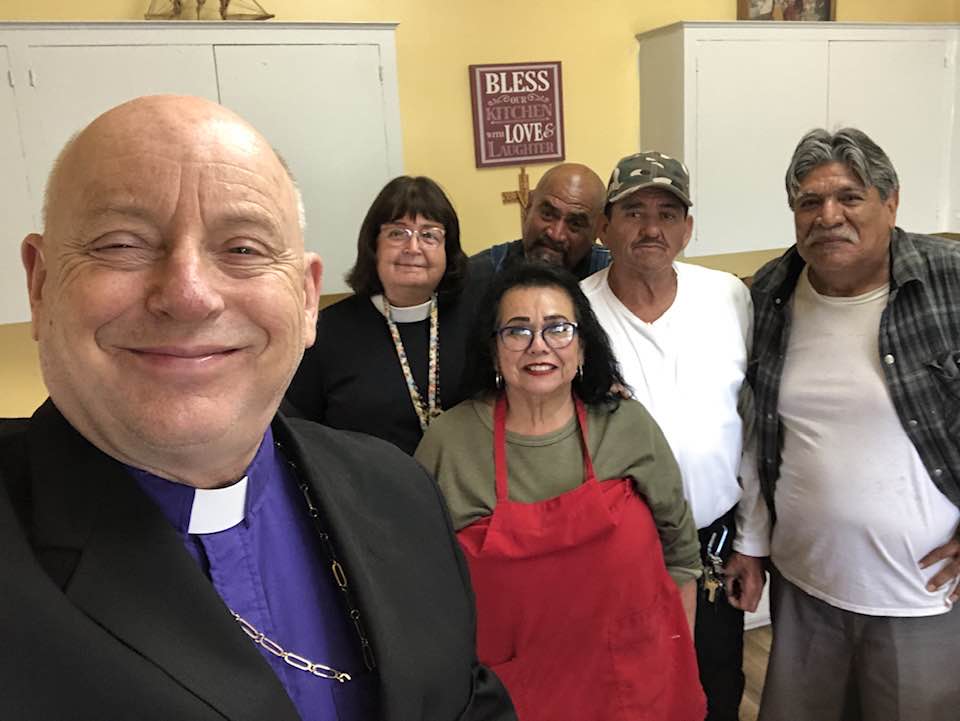 Every Thursday morning, about 30, now including apartment dwellers, come for Gloria’s breakfast and Jesus and Mary’s Holy Eucharist. More and more congregants are Spanish-speaking, entonces Madre Maria esta estudiando y practicando su espanol mas y mas. Afterward, enough food goes home for up to a hundred families. Mary’s even getting pressure to resume Sunday services. She currently leases the church out for weekly worship and funerals. As Mary and I left for lunch, folks were gathering for their weekly NA meeting.
Every Thursday morning, about 30, now including apartment dwellers, come for Gloria’s breakfast and Jesus and Mary’s Holy Eucharist. More and more congregants are Spanish-speaking, entonces Madre Maria esta estudiando y practicando su espanol mas y mas. Afterward, enough food goes home for up to a hundred families. Mary’s even getting pressure to resume Sunday services. She currently leases the church out for weekly worship and funerals. As Mary and I left for lunch, folks were gathering for their weekly NA meeting.
These days the budget runs about $120,000, and we’re relying too much on the generosity of some very special people. I left St. Michael’s with the feeling that the Holy Spirit had made it a laboratory for the future of The Episcopal Church in our region: affordable housing, well-educated lay leadership coming into its own alongside the ordained orders, multicultural and polylingual competency, partnerships with neighboring parishes, and advocacy for more humane care of the mentally ill and addicted, all rooted in the core Christian value of daily service to the marginalized.
“These,” Mary said, “are the people Jesus would be with.”
